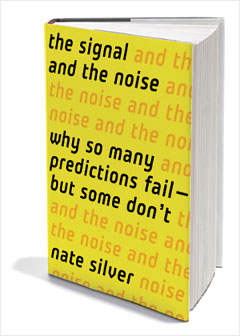
At risk to go for someone who is seriously overdue in the news, I have to say that it is only some time I've heard of sitNgo Double or Nothing on PokerStars. I know it's been some time that they exist already, but this is that since lately that I participate. They are really interesting; a little different from the standard sitNgos. And even though the last time where I have been out a little before the money I had the best hand, I must say that I me is do a lot of fun. This week, I would like to share with you some tips on these sitNgos.
At risk to go for someone who is seriously overdue in the news, I have to say that it is only some time I've heard of sitNgo Double or Nothing on PokerStars. I know it's been some time that they exist already, but this is that since lately that I participate. They are really interesting; a little different from the standard sitNgos. And even though the last time where I have been out a little before the money I had the best hand, I must say that I me is do a lot of fun. This week, I would like to share with you some tips on these sitNgos.
For people who do not know these sitNgos, it comes to sitNgos to 10 players with 1500 chips of departure (on PokerStars) where the top 5 pays 2 times the buy-in and where the other 5 players do not make money. "Double or nothing", the name says! Finished 'premier' pay as well as Finish "fifth". The interesting thing with these sitNgos is that it theoretically easier to make money as more people receive a scholarship and given the flat structure of the scholarships, there is less variance. The less attractive side with these sitNgos is that if you are already a player who wins in regular sitNgos, you will make more money in these since there is more advantage to finish first. In addition, to make money, you will need to finish in the Awards 2 times 3 or more. If you alternate scholarships and losses, you will end up losing by rake which is high compared to the scholarships.
Wait for your hand
If I had to summarize my strategy in two words, I would say "playing tight"! I mean, play really tight. Given the structure of the exchanges, there is not much merit to accumulate chips. You don't need a huge stack to scholarships. One that ends with 2 big blinds will have the same scholarship that has more than 50% of the tokens. Early in the game when the blinds are small, I suggest playing premium hands, especially in early position. Obviously, you can just open your game as you approach the button. Open your game without taking unnecessary risks.
Your goal is to protect your stack for the first steps. If you get there, you'll be in a good position. Let the players who do not know how to play these sitNgo getting out before you. Obviously, if you can find a situation where you have a good percentage of double, take this opportunity. Even if you do not need to accumulate chips in the traditional sense, you will need to accumulate a little to remain on the "cruise control" and move the bubble.
Do some research on your opponents
Do some research on the competition. Do some research on the players at your table. If you notice that a player is on multiple tables, he probably knows what he is doing. Given the low variance of these tournaments, many players like small profits they packed into each of them and like to play several at once. Another way to sniff out the "regular" is to look at the lobby. If you see inclusions, 1 or more names coming back, this is probably it's regular and you should avoid them.The good thing with the regular however is that they are predictable and it is easy to play against them. The fact that they won't make big mistakes from the outset makes them predictable. They know that the key is to play tight and it will be easy to steal their blinds. You know that if you are revived by them, is that they have a really strong hand.
The fact to identify regulars helped me a lot during my last "Double or nothing". I was in a good position with 2,660 chips, third of 8 players remaining when the blinds were 75/150. I raised to 500 in MP. The second biggest stack raised me all-in. The smallest stack decided to call. If I'd been in a regular sitNgo, there is good chance that I've pressed the CALL button, but here, I took a break to assess the situation. The guy covering me was a regular who played well this kind of tournament. He also knew that he must be crazy for risking as much of his stack without having a very big hand that would give him an advantage over almost any of my range of hands. I suspected to have something like the ACE, hand with which it would be ahead of all hands. I slept my kings with good reason, according to my reading. He still lost the hand on the River (flush) after he flopped a set of ACEs.
A few hands later, I overestimated the abilities of one of my opponents and it cost me the tournament. I was on the big blind (200) AJ and a stack of 1885, with the median stack. The same player who was lucky earlier decided to limp. All the other players had slept and I was wondering if I could not use my stack to pick up the pot. I pushed all-in telling me that it would call me with a strong hand. I had not noticed that this player was very Stuart. This time, he called with KQ which struck a K on the turn for out me of the tournament. I had overestimated its qualities of player and it was now too late to regret. Even if I had the best starting hand, my advantage was not big enough to make it worthwhile and risk my full stack on that hand.
Mid and end of sitNgo
Rendered at this stage, players the more loose will probably be already out and the remaining players will be probably tighter. In addition, the stacks will be relatively small compared to the size of the blinds. You'll have almost all the same number of chips. It is unlikely that you see very big stacks and very small stacks as in regular sitNgos. In the "Double or nothing", it will be easier to steal the blinds and it is important to do so given the high percentage of your stack that they represent at this stage. But as I said earlier, it will be very important for you to determine the skill level of your opponents. Avoid the bluffs. When the blinds are high enough, in position to steal the blinds, you should use only two options: fold or all in. I do not recommend attempting to bluff a player who tries to steal your blind. If you decide to steal the blinds without all-in, don't do that if you are willing to go to the end with your hand to not get "playback".When arrives the time of the bubble, if you are the small stack, wait for the right moment and push your chips as in any other tournament. If you are the big stack, don't feel you have to call the all-in from the small stacks. You do not need these tokens. If you don't have a very good hand, lie down; you do not want to double the small stacks. Let players be eliminated between them.
In the "Double or Nothing", remember that you do not play to win; you play to survive. You may not play your stack on small benefits only; you want a very large. You must earn tokens to survive an orbit more. I would not suggest the "small ball" strategy since you érodez your stack slowly. If you have a very good opportunity to double, take it since it will allow you to survive even longer, but do not force things and do not attempt to dominate the table. Let the situations present themselves to you.




